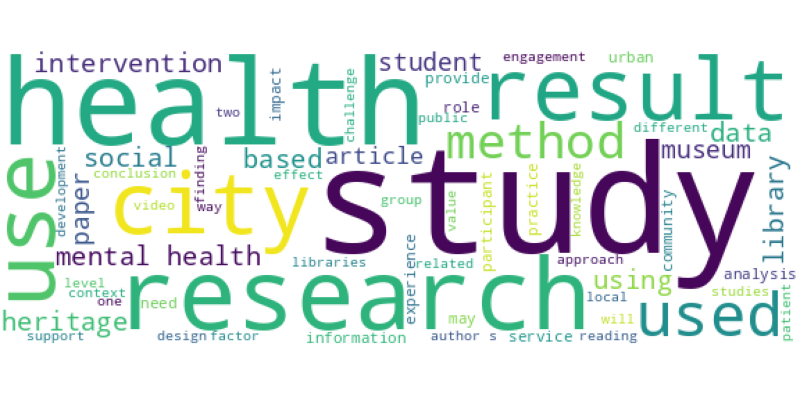| Id | 2397 | |
| Author | Choi E.; Yoon E.-H.; Park M.-H. | |
| Title | Game-based digital therapeutics for children and adolescents: Their therapeutic effects on mental health problems, the sustainability of the therapeutic effects and the transfer of cognitive functions | |
| Reference | Choi E.; Yoon E.-H.; Park M.-H. Game-based digital therapeutics for children and adolescents: Their therapeutic effects on mental health problems, the sustainability of the therapeutic effects and the transfer of cognitive functions,Frontiers in Psychiatry 13 |
|
| Link to article | https://www.scopus.com/inward/record.uri?eid=2-s2.0-85144064988&doi=10.3389%2ffpsyt.2022.986687&partnerID=40&md5=aa31257305ec5f47481a9c21342755ba |
|
| Abstract | Mental health problems in childhood and adolescence (e. g., attention deficits, problems in emotional understanding and subclinical levels of anxiety) are reported to develop further in adulthood and/or to increase the risk of developing mental health disorders in adulthood. Although it is important to provide treatment or prevention interventions for children and adolescents in order to reduce the risk of the further development of mental health problems, the pharmacological and behavioral treatments for this age group have limitations (e.g., limited access, unsustainable treatment effects and the lack of engagement in intervention). In order to overcome the limitations of conventional treatments, the use of digital technology, especially video games for this age group, is suggested. In order to be accepted as clinical interventions, objective evidence for the therapeutic effects of digital therapeutic that used video games to treat or prevent targeted mental health problems are required. Thus, this review aims to explore whether game-based digital therapeutics (DTx) for children and adolescents showed therapeutic effects on targeted mental health problems. As game-based DTx are suggested to show sustained therapeutic effects and the transfer of cognitive functions, it also reviews the maintenance of the therapeutic effects of DTx and the extent of the transfer of cognitive functions. Game-based DTx that are developed to treat or prevent mental health problems (e.g., attention deficit, depression) in children and adolescents are found to show therapeutic effects on targeted mental health problems despite the limitations (e.g., small sample size, limited investigation of the sustainability). This review would contribute to the understanding of whether there is objective evidence of the therapeutic effects of digital therapeutics using video games that deliver treatment or prevention interventions for mental health problems in children and adolescents. Copyright © 2022 Choi, Yoon and Park. |
|
| Keywords | anxiety disorder; attention deficit hyperactivity disorder; attention disturbance; clinical effectiveness; cognition; cognition assessment; comorbidity; depression; emotion regulation; follow up; game based digital therapy; human; mental disease; pediatric patient; program acceptability; program sustainability; psychotherapy; Review; treatment outcome; treatment response; video game |
Wordcloud:



